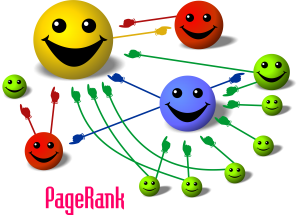Photo credit: Mike Baird
There is always something new happening out there in cyberspace; it’s the nature of the beast. One of the latest developments is Google’s “Hummingbird”. It’s often referred in a way that might at first make you think that it’s something you ought to have. But the reality of it is that you have no choice. That’s always supposing of course that you use Google as your preferred search engine, which let’s face it, the majority of us do.
Hummingbird is an Algorithm
Hummingbird is no more than an algorithm, which is a mathematical string or type of function that computer geeks create and make use of in order to establish certain goals, such as carrying out an online search. They are of course quite complex, and when one considers what Google does in its browsing capability, it’s no small wonder. In this case, Hummingbird is the biggest update Google has made to its major algorithms since 2011 and these address how search recognises speech and natural-sounding text. This means that it now looks at how we talk and bases its findings on this, helping to make search more intuitive and relevant.
The Things we take for Granted
We all tend to take for granted how quickly and efficiently the online search process takes. Within fractions of a second, a browser such as Google interprets the search criteria entered into the browser window, converts it into electronic data, goes away to crawl the entire World Wide Web in search of the closest matches, and turns its findings into the search engine report pages that we have become so familiar with.
Google’s Birthday Present to its Users
Google recently celebrated its 15th birthday, and in a reversal of usual birthday gift giving tradition, they gave us the present of the new, so called, Hummingbird algorithm. Whilst Google tweaks its algorithms from time to time to keep us all on our toes, Hummingbird represents the first major change to its algorithms for years. So what is its significance?
What Hummingbird Actually Does
Hummingbird heralds a significant change in the way that the online search process works, and what the focus of a search delivers. We all know the importance of using keywords. But because when searching, people sometimes feel that keywords deliver limited results, or may not deliver a properly focused report, they now often supplement those keywords with additional text. In other words, the queries or search criteria have become more complex.
It’s Become More Human
The new Hummingbird algorithm has in actual fact been designed to be able to interpret this new, and more complex, so called “conversational” search criteria. It has become more human. Let’s look at an example in order to clarify how the revised search algorithm works.
In the past, someone searching for a new smartphone would typically have searched under say “Apple iPhone”. Today however, they are more likely to enter something like “Where can I buy a cheap 4G compatible Smartphone?” If you were to try this, you’ll see that the algorithm responds by pulling together a complete range of websites focussing on each of the important words. It recognises the “where can I buy question”, and it reports on “cheap”, “4G”, and “Smartphone”. It provides a much more intelligent response to each segment of the search query.
It Opens Up a Whole New Ballpark
This is actually a smart move. In the first place, it creates an increased opportunity for Google to earn more revenue for themselves. That’s because eMarketeers who use the “Pay per Click” marketing methodology, (and AdWords in particular), will spot the opportunity and begin to cover all of the increased options. But it’s great for websites and businesses too, because whereas many of the generic keyword have been monopolised by the “big boys”, this now open up a whole new ballpark, and if businesses react quickly and cleverly, they can increase the flow of traffic to their websites.
A New Lease of Life for Content Marketing
By opening up the parameters of the search query, Google have breathed a new lease of life into the possibilities for content marketing. Whereas previously, many words would simply have been seen by Google as worthless padding, they will now have a more specific relevance. Website owners will now be able to include many of these extra terms within content that will now be reviewed as being relevant. This in turn creates the opportunity for new, fresh content to be used, rather than simply regurgitating the same old, time worn keywords, time after time.
The More Sinister Side of Hummingbird
Hummingbird does, however, have something that many people will view as being a little sinister. It’s what is referred to as “content scraping”. When the Google spiders crawl the web in search of information, in order to index websites in response to a search query, it will gather certain relevant data and display it in the search engine report pages. This will in some cases mean that searchers will not have to click through to a particular website to glean the information for themselves. In other words, under certain circumstances, Hummingbird may actually be seen as robbing websites of traffic.
Google is a Law unto Itself
The decision to perform content scraping (even though they frown on others doing it) was unilateral. Unfortunately, Google are so large that they tend to be a law unto themselves, and if website owners are keen to improve their indexing and search engine rankings, they have no choice other than to take advantage of the new Hummingbird algorithm where they can.
Adapt and Evolve
It’s not the first time that website owners will be left feeling a little vulnerable by Google, nor will it be the last. What it means in effect is that websites will have to adapt and offer something special in order to make it worthwhile for visitors to click through to them. But one thing we have all learned throughout the ongoing growth phenomenon that is the World Wide Web is that it does evolve, and it evolves quickly, far more quickly than a certain Charles Darwin would have ever dreamt possible.
Finally, a little reassurance. Google’s Hummingbird is very unlikely to have a detrimental effect on your site in a similar way that Penguin and Panda affected many people. The algorithm has actually been out for over a month anyway, so you’re likely to have noticed.
If you have a site that utilises keywords properly and also uses white hat SEO practices that ensures that you build followers and traffic organically or through PPC, then you shouldn’t worry at all. A site with quality content, that takes advantage of social media and other distribution channels, will continue to perform as it always has, if not slightly better.




